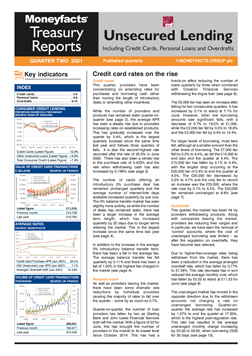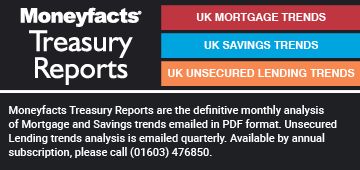Rachel Springall, Finance Expert at Moneyfacts, said:
“In the run-up to the festive season it seems credit card providers have made overhauls to their interest-free balance transfer offers, which could well be perfectly timed for borrowers looking to consolidate their debts and have more time to pay off their balance without incurring interest. 0% introductory balance transfer terms have lengthened, associated fees to transfer have fallen and there is more choice. One provider to make a notable change was Tesco Bank, which increased its balance transfer card by one month to 27 months and dropped its transfer fee to 1.19%, down from 1.49%. Santander also launched a 31-month 0% introductory balance transfer card in September, currently the longest term on the market and the longest term since 2019.
“Spenders will have found a slight fluctuation with interest-free purchase offers this quarter, despite a slight fall in the average 0% term since September, interest-free terms are still up compared to a year ago and there are a few more deals to choose from. Outside of a 0% offer though, the average purchase APR has risen to 26.2%. Some card providers increased their purchase rates during the quarter, including Tesco Bank which saw an increase from 20.9% to 21.9% on its Low Fee Balance Transfer Clubcard Mastercard and American Express, which increased rates across its entire card range, which included its Platinum Cashback Credit Card from 27.3% APR to 29.8%.
“As we head towards 2022, consumers would be wise to take time to compare offers now, especially if they are looking to consolidate debts. The best balance transfer card may not be the one with the longest 0% term, as borrowers could be better off seeking a shorter term with a lower balance transfer fee or even a fee-free option. Not only this, but borrowers are not guaranteed to get the advertised deal. Once they have a new card, being diligent and sticking to a repayment plan is as essential as it is to keep eyes on their credit report before applying for a credit card, or to seek debt advice if they are finding it hard to keep up with repayments.”
Rachel Springall, Finance Expert at Moneyfacts, said:
“In the run-up to the festive season it seems credit card providers have made overhauls to their interest-free balance transfer offers, which could well be perfectly timed for borrowers looking to consolidate their debts and have more time to pay off their balance without incurring interest. 0% introductory balance transfer terms have lengthened, associated fees to transfer have fallen and there is more choice. One provider to make a notable change was Tesco Bank, which increased its balance transfer card by one month to 27 months and dropped its transfer fee to 1.19%, down from 1.49%. Santander also launched a 31-month 0% introductory balance transfer card in September, currently the longest term on the market and the longest term since 2019.
“Spenders will have found a slight fluctuation with interest-free purchase offers this quarter, despite a slight fall in the average 0% term since September, interest-free terms are still up compared to a year ago and there are a few more deals to choose from. Outside of a 0% offer though, the average purchase APR has risen to 26.2%. Some card providers increased their purchase rates during the quarter, including Tesco Bank which saw an increase from 20.9% to 21.9% on its Low Fee Balance Transfer Clubcard Mastercard and American Express, which increased rates across its entire card range, which included its Platinum Cashback Credit Card from 27.3% APR to 29.8%.
“As we head towards 2022, consumers would be wise to take time to compare offers now, especially if they are looking to consolidate debts. The best balance transfer card may not be the one with the longest 0% term, as borrowers could be better off seeking a shorter term with a lower balance transfer fee or even a fee-free option. Not only this, but borrowers are not guaranteed to get the advertised deal. Once they have a new card, being diligent and sticking to a repayment plan is as essential as it is to keep eyes on their credit report before applying for a credit card, or to seek debt advice if they are finding it hard to keep up with repayments.”











